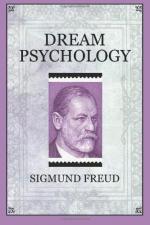Hence we cannot refuse to acknowledge that the two kinds of essentially different psychic processes participate in the formation of the dream; one forms perfectly correct dream thoughts which are equivalent to normal thoughts, while the other treats these ideas in a highly surprising and incorrect manner. The latter process we have already set apart as the dream-work proper. What have we now to advance concerning this latter psychic process?
We should be unable to answer this question here if we had not penetrated considerably into the psychology of the neuroses and especially of hysteria. From this we learn that the same incorrect psychic processes—as well as others that have not been enumerated—control the formation of hysterical symptoms. In hysteria, too, we at once find a series of perfectly correct thoughts equivalent to our conscious thoughts, of whose existence, however, in this form we can learn nothing and which we can only subsequently reconstruct. If they have forced their way anywhere to our perception, we discover from the analysis of the symptom formed that these normal thoughts have been subjected to abnormal treatment and have been transformed into the symptom by means of condensation and compromise formation, through superficial associations, under cover of contradictions, and eventually over the road of regression. In view of the complete identity found between the peculiarities of the dream-work and of the psychic activity forming the psychoneurotic symptoms, we shall feel justified in transferring to the dream the conclusions urged upon us by hysteria.
From the theory of hysteria we borrow the proposition that such an abnormal psychic elaboration of a normal train of thought takes place only when the latter has been used for the transference of an unconscious wish which dates from the infantile life and is in a state of repression. In accordance with this proposition we have construed the theory of the dream on the assumption that the actuating dream-wish invariably originates in the unconscious, which, as we ourselves have admitted, cannot be universally demonstrated though it cannot be refuted. But in order to explain the real meaning of the term repression, which we have employed so freely, we shall be obliged to make some further addition to our psychological construction.
We have above elaborated the fiction of a primitive psychic apparatus, whose work is regulated by the efforts to avoid accumulation of excitement and as far as possible to maintain itself free from excitement. For this reason it was constructed after the plan of a reflex apparatus; the motility, originally the path for the inner bodily change, formed a discharging path standing at its disposal. We subsequently discussed the psychic results of a feeling of gratification, and we might at the same time have introduced the second assumption, viz. that accumulation of excitement—following




